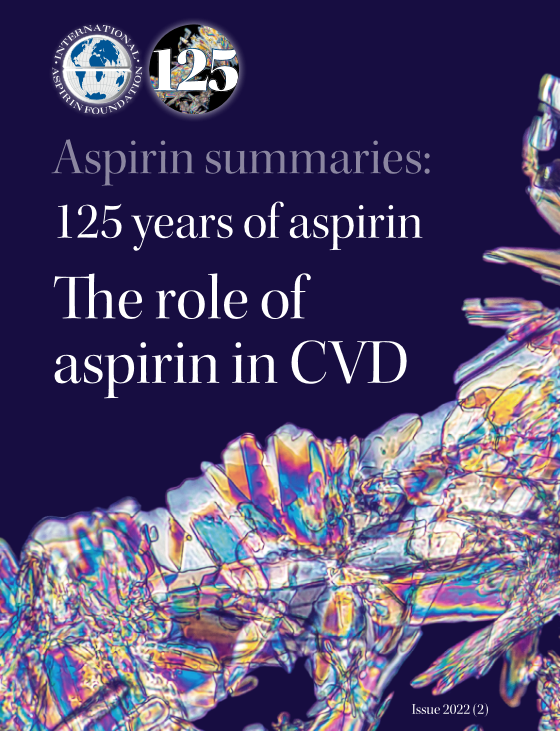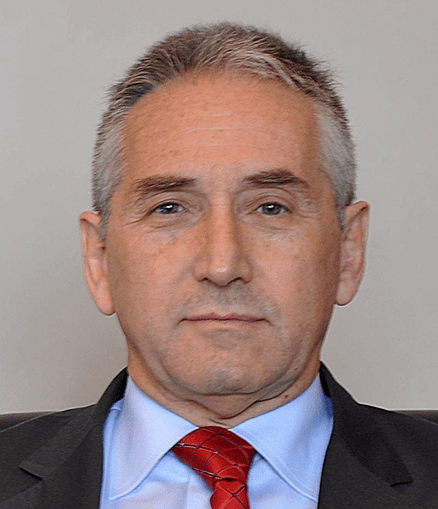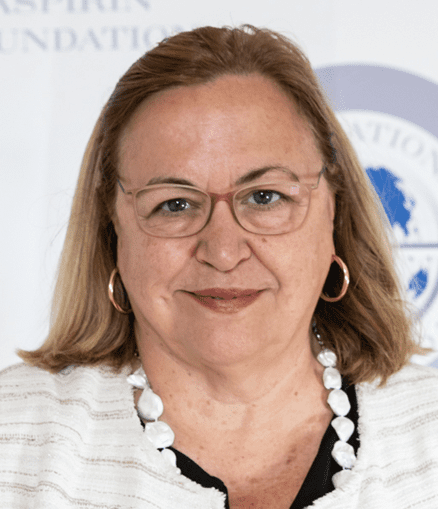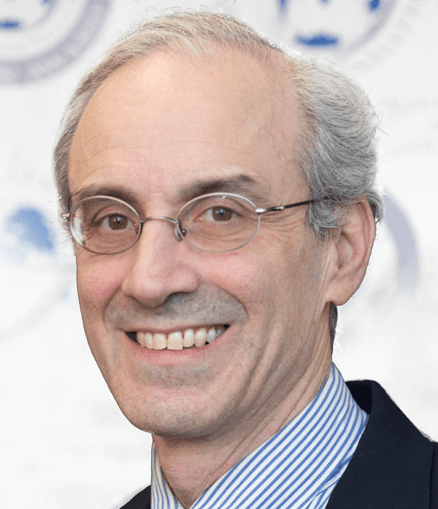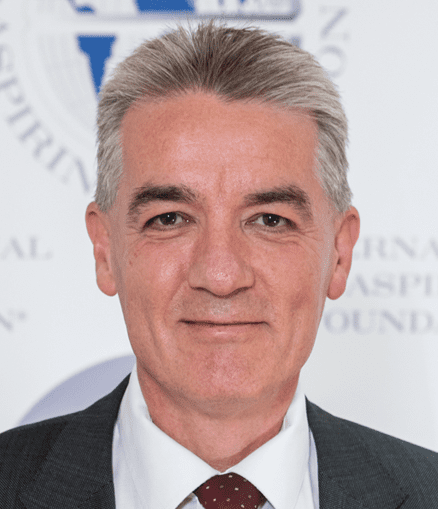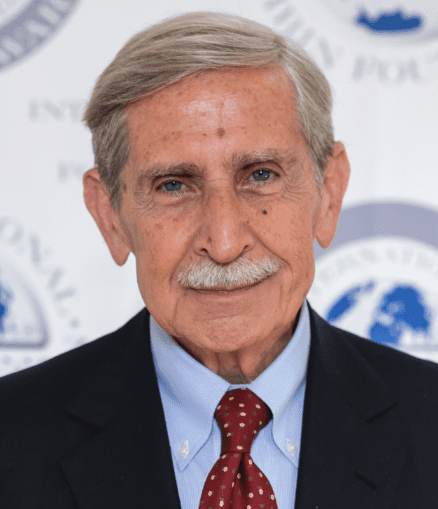Aspirin Summaries : 125 Years of aspirin (Issue 2) : The role of aspirin in CVD
This issue celebrates the role past, present and future of aspirin in the prevention of cardiovascular disease (CVD). We will look at the important role aspirin has in both primary and secondary CVD prevention and review its use across a variety of CVD states including myocardial infarction (MI), ischemic stroke, peripheral artery disease (PAD) and percutaneous coronary intervention (PCI)1.
The history of aspirin’s use, or the sources of its constituents in nature’s use, dates back to 1534 BCE when the Ebers Papyrus lists within its 700 medicinal and herbal remedies the plant species tjeret or salix, known now by its common name the willow, as an anti-inflammatory/pain reliever and a general-purpose tonic.
After the first randomised trial for its efficacy in CVD prevention was reported in 19742 aspirin enjoyed growing success from large, randomised trials resulting in 1980 with the FDA approving the use of aspirin after a stroke, in 1985 approving it for use after MI and in 1996 approving its use in suspected MI3.
Since then, aspirin has held a central role in CVD prevention and has also inspired work into other compounds that have an additive or alternative approach to antithrombotic therapy. Despite many twists and turn on its long journey aspirin is still the subject of much CVD preventative research and still has a role to play for many individuals trying to lower their risk of a first or subsequent CVD event.
One example of this is the recent breakthrough for aspirin in CVD prevention for people with chronic kidney disease. Patients with chronic kidney disease (CKD) have a high cardiovascular risk and cardiovascular events are the leading cause of death for this group4. A post-hoc subgroup analysis of 983 patients from the TIPS-3 study has shown that patients with CKD, without established CVD, taking 75mg of aspirin daily benefited from a 43% reduction in CVD events without an increased risk of bleeding 5,6.
The authors concluded:
‘Results suggest that the CV risk in people with CKD may be substantially alleviated with aspirin alone and in combination with a polypill.’
This 125-year celebration of aspirin will focus on some of the recent research demonstrating the current and enduring role aspirin has in CVD prevention. In clinical practice we are very aware of the challenge of CVD and the important work to detect and lower CVD risk and events thus reducing morbidity and mortality among our patients.
References
- Bhatt DL and Pollack CV. The future of aspirin therapy in cardiovascular disease. Am J Cardiol 2021; 144:S40-S47 https://doi.org/10.1016/j.amjcard.2020.12.019
- Elwood PC, Cochrane AL, Burr M, et al. a randomised controlled trial of acetylsalicylic acid in the secondary prevention of mortality from myocardial infarction. BMJ 1974;1:436-40. https://pubmed.ncbi.nlm.nih.gov/4593555/
- Fuster V and Sweeny JM. Aspirin. A historical and contemporary therapeutic overview. Circulation. 2011:123:768-778. https://pubmed.ncbi.nlm.nih.gov/21343593/
- Jankowski J, Floege J, Fliser D et al. Cardiovascular disease in chronic kidney disease. Circulation. 2021;143;1157-1172. https://www.ahajournals.org/doi/10.1161/CIRCULATIONAHA.120.050686
- Zoler M. Aspirin links with CVD cut in patients with kidney disease. Medscape May 20,2022. https://www.medscape.com/viewarticle/974373#:~:text=Patients%20with%20higher%2Dgrade%20 chronic,4.6%20years%20of%20follow%2Dup.
- Mann JE, Joseph P, Gao P et al MO201: Effects of aspirin in primary prevention of cardiovascular (CV) disease in people with chronic kidney disease (CKD): results of the TIPS3 trial. Nephrology Dialysis Transplantation 2022;37;(3) https://academic.oup.com/ndt/article/37/Supplement_3/gfac066.103/6578611
Benefits versus risks in the primary prevention of CVD
The authors of this paper outline the ‘incontrovertible evidence’ supporting the use of low-dose aspirin for secondary CVD prevention in those who have already experienced a CVD event such as MI, stroke, unstable angina and TIA. In primary CVD prevention however, the risk of having a CVD event is lower and as a result the benefit of aspirin use is also lower and potential risks from taking low-dose aspirin (e.g. bleeding events) become more of a concern. The authors explore the clinical significance of someone having a CVD event versus a bleeding event as these may not be the same for the individual even if numerically, they may appear equal in chance from primary prevention trial data.
Initiatives to improve the risk benefit ratio of low-dose aspirin will be helpful. Already there is data to support the elimination of any pre-existing Helicobacter pylori infection prior to aspirin use with this strategy resulting in an approximate 25% reduction in gastrointestinal (GI) side effects with low-dose aspirin. Long-term controlled studies are needed to evaluate the impact of proton pump inhibitors (PPIs) for reducing GI bleeding risk in people taking low-dose aspirin, but early indicators are positive.
Looking a data from 47,140 patients from recent studies (ARRIVE, ASCENS, ASPREE) the authors explain that people taking low-dose aspirin for primary CVD prevention reduce their relative risk of a CV event by 11% (absolute risk reduction 0.41%) but are 1.43 times more likely to have a bleeding event (absolute risk 0.47%). The important factor for guiding decision making around who will benefit from low-dose aspirin is to be able to clearly identify those at highest risk of a CVD event and therefore most likely to benefit from aspirin. Strategies, as discussed above for reducing bleeding risk will also be important.
The authors conclude:
“the available evidence demonstrates that many vascular events could be prevented with broader appropriate use of ASA.”
For further information please see:
Weisman SM and Brunton S. Primary prevention of CVD with aspirin: Benefits vs risks. The Journal of Family Practice. 2021; Supp. 70; 6; S41-S46 doi: 10.12788/jfp.0222
Consider benefit to risk ratio rather than just age when prescribing aspirin for primary cardiovascular disease prevention.
This article comments upon recent guidelines from the American Heart Association/American College of Cardiology Task Force and US Preventative Services Task Force restricting low-dose aspirin use for primary CVD prevention to those under 70 or under 60 years of age respectively. The authors discuss this in the context of the most comprehensive meta-analysis the Antithrombotic Trialist (ATT) Collaboration which reported a significant 12% reduction in CVD with a similar benefit versus risk ratio displayed at all ages. The authors conducted an update of this metanalysis using PRISMA guidelines and added four additional eligible trials to the original six trials in the ATT and found that low-dose aspirin use resulted in a statistically significant 13% reduction in CVD.
The authors explore issues with adherence and efficacy in low-dose aspirin trials. If participants stop taking aspirin their risk of CVD is as high as the placebo group within a week. Adherence rates in the three of the new trials added, ARRIVE, ASPREE and TIPS-3 were around 60% and this may be why these newer trials failed to detect the significant benefits that were seen in older adults in the previous trials.
The authors point out that to be guided by age alone in decision making about aspirin for primary CVD prevention is contradictory as CVD risk increases with age. Instead, they recommend looking at individuals where CVD risk is > 10% where the evidence suggests that the benefit of low-dose aspirin use for primary CVD prevention is likely to outweigh any risk.
The increasing health care challenges of metabolic syndrome are also explored. In the US 40% of adults over the age of 40 have metabolic syndrome, a mixture of weight, hypertension, dyslipidaemia, and insulin resistance (pre-diabetes). This increases their 10-year CVD risk of having a first event to a 16-18%, similar to the risk of having a recurrent event in the secondary
CVD risk population. In this high-risk group of patients strategies such as lifestyle interventions, statins and blood pressure medications are important and may if successful reduce CVD risk to below 10% in which case aspirin will not be indicated. Where these first line measures are not successful and risk remains, low-dose aspirin is another option for reducing risk and preventing a CVD event.
The authors suggest primary care providers base clinical decisions around low-dose aspirin use for primary CVD prevention on all the information they have about their patients including:
- CVD risk calculation
- Weight
- Physical inactivity
- Age
- Family history of premature CVD
- Patient preference
They conclude that a strategy of seeing guidelines as only guidance and adopting individual clinical judgements in helping to reduce CVD risk would do;
“far more good for far more patients as well as far more good than harm in both developed and developing countries.”
They note that this approach is the same previously advocated by Professor George Rose in 2001.
For further information please see:
Kim K, Hennekens CH, Martinez L, Gaziano JM et al. Primary care providers should prescribe aspirin to prevent cardiovascular disease based on benefit-risk ratio, not age. Fam Med Com Health 2021; (:e001475. Doi:10.1136/fmch- 2021-001475
What is the best dose of aspirin for CVD prevention?
In this article the author explores the long-standing debate over the best dose for aspirin in CVD prevention looking at data from the ADAPTABLE study. The ADAPTABLE study published in 2021 found that 325 mg of aspirin daily was not superior to the 81 mg daily dose in people with established atherosclerotic cardiovascular disease (ASCVD). The trial followed 15,076 patients with established ASCVD randomly assigned to either 81 mg or 325 mg of aspirin daily and followed up for a two-year period. The results showed that there were no differences between the two doses in
terms of;
- Death rate
- Hospitalization for heart attack or stroke
- Bleeding
Interestingly people taking 325 mg of aspirin were more likely to switch to the lower 81 mg dose or stop taking aspirin altogether (42% versus 7% respectively).
It is thought that this may have impacted on the study results and it was found that those who didn’t switch doses during the study experienced better outcomes. The lead author of ADAPTABLE has stated that patients who have tolerated the 325 mg dose over time should speak with a clinician before reducing their dose.
However, the overall take home message is that;:
“81 mg per day is the appropriate dose for most patients with established heart disease.”
Thus, bringing some clarity to the debate around the best dose for secondary CVD prevention.
For further information please see:
Bonner L. What’s the right aspirin dose for CVD patients? Pharmacy Today August 2021 www.pharmacytoday.org
Secondary stroke prevention – antiplatelet versus oral anticoagulant therapy
The cause of most ischemic strokes is either atherosclerosis or an embolism but around a third of ischemic strokes have no identifiable cause. Embolic stroke of undetermined source (ESUS) is a subset of these cryptogenic strokes and show a non-lacunar ischemic infarction with no identifiable artery or cardiac embolism. This study used a systematic review and meta-analysis of randomised controlled trials in order to compare the safety and efficacy of antiplatelets versus oral anticoagulants in people who have experienced a ESUS as well as looking at subgroups to see if certain types of patient may benefit more from one therapeutic strategy compared with the other.
The results showed no benefit from using a direct oral anticoagulant (DOAC) over an aspirin antiplatelet regimen in terms of reduced risk of recurrent stroke, MI or all cause mortality. The DOAC regimen did however increase the incidence of major or clinically relevant non-major bleeding events.
An exploratory analysis suggests further research is required to explore potential benefits of oral anticoagulants versus antiplatelet therapy in individuals with;
- Impaired renal function
- Older age
- Randomised more than 30 days after the initial stroke
The authors state:
‘This meta-analysis provides no evidence for a benefit of routine anticoagulation compared with antiplatelet therapy in patients with ESUS for stroke recurrence and increases bleeding events’.
For further information please see:
Hariharan NN, Patel K, Sikder O et al. Oral anticoagulation versus antiplatelet therapy for secondary stroke prevention in patients with embolic stroke of undetermined source: A systematic review and meta-analysis. European Stroke Journal 2022. https://journals.sagepub.com/doi/full/10.1177/23969873221076971
Low-dose aspirin in combination with rivaroxaban versus low-dose aspirin and P2Y12 inhibitor for patients at high risk of or with coronary and peripheral artery disease.
This study used a systematic literature review and indirect treatment comparison (ITC) to analyse randomised controlled trial evidence and ascertain the most effective antithrombotic strategy for preventing CVD events in people with stable coronary artery disease (CAD) and/or peripheral artery disease (PAD). Using data from six publications, reporting results from the CHARISMA and COMPASS trials, the authors found that rivaroxaban 2.5 mg twice daily plus low-dose aspirin resulted in a lower risk of major adverse cardiovascular events (MACEs) than combination therapy with clopidogrel and low-dose aspirin (HR=0.82,95% CI=0.68-0.98). This equates to an 18% relative hazard reduction for MACEs. The MACEs assessed were cardiovascular death, MI and stroke. There was no evidence of any difference in moderate-to-severe bleeding, fatal bleeding or intracranial haemorrhage.
The authors conclude:
“Compared to clopidogrel+ low-dose aspirin, the use of rivaroxaban 2.5 mg twice daily with low-dose aspirin is associated with a lower risk of MACEs, CV death and stroke including ischemic stroke in patients with or at high risk for chronic CAD and/or PAD.”
This benefit was seen without any significantly increased risk of bleeding.
For further information please see:
Coleman CI, Kharat AA, Bookhart B et al. Combination anticoagulant or P2Y12 inhibitor with low-dose aspirin versus low-dose aspirin alone in patients at risk or with documented coronary and/or peripheral artery disease. Current Medical Research and Opinion 2022; 38; 1:27-34. https://pubmed.ncbi.nlm.nih.gov/34641745/
De- escalation strategies for DAPT in PCI after ACS
The authors conclude:
This article investigates ways to provide biological and clinical rationale to guide de-escalation strategies for dual antiplatelet therapy (DAPT) post percutaneous coronary intervention (PCI) following acute coronary syndrome (ACS). Advances in stents, implantation techniques and standardised cardiovascular medications as well as a better understanding about who is at risk of bleeding has changed the landscape for DAPT in recent times.
The authors suggest that a guided de-escalation strategy can help manage the complexities of decision making around DAPT therapy length and components and improve patient outcomes. The results of recent randomised clinical trials have led to concern over uniform de-escalation approaches, for example early aspirin discontinuation with ongoing clopidogrel monotherapy led to a potential increase in ischemic events.
Tools to help guide risk stratification and individualise antithrombotic therapy can include:
- Platelet function test
- Genotyping
- Ischemic risk scores
- Bleeding risk scores
- Co-morbidities
- Drug availability
- Patient preference/ weighting of ischemic versus bleeding risk
- Occurrence of adverse events
“Future research should indicate how to best balance patients’ bleeding and ischemic risk and subsequently suggest them with best patient-tailored therapy.’’
For further information please see:
Park JS and Jeong YH. Unguided de-escalation strategy from potent P2Y12 inhibitors in patients presented with ACS: when, whom and how? Korean Circ J. 2022 52(4):e36 https://e-kcj.org/pdf/10.4070/kcj.2022.0022
Disclaimers:
• The information, views and opinions expressed are not endorsed or approved by members of The Scientific Advisory Board unless otherwise stated.
• The Information section is compiled using current published information at the time of writing and whilst every effort has been made to avoid errors, professional clinical judgement is required to interpret the information given. The information given is referenced clearly for further analysis as required.
• Every effort is made by the International Aspirin Foundation to see that no misleading or inaccurate data, statement or opinion appear. The International Aspirin Foundation cannot be held responsible for any errors or for any consequences arising from the use of the information.
• The International Aspirin Foundation, its associates and The Scientific Advisory Board accept no liability whatsoever for the consequences of any such inaccurate or misleading data, information, opinion or statement.
• Any information involving drug usage, should only be followed in conjunction with the drug manufacturer’s own published literature in their own country.
• Medical sciences evolve on a continual basis and therefore independent verification of the content should be made.
• The information, views, opinions and any other material provided should not be relied upon as a substitute to professional medical advice in relation to any medical condition. The International Aspirin Foundation, its associates and The Scientific Advisory Board accept no liability whatsoever for any consequences arising from any reliance placed on such information, views, opinions and other materials in lieu of professional medical advice.

